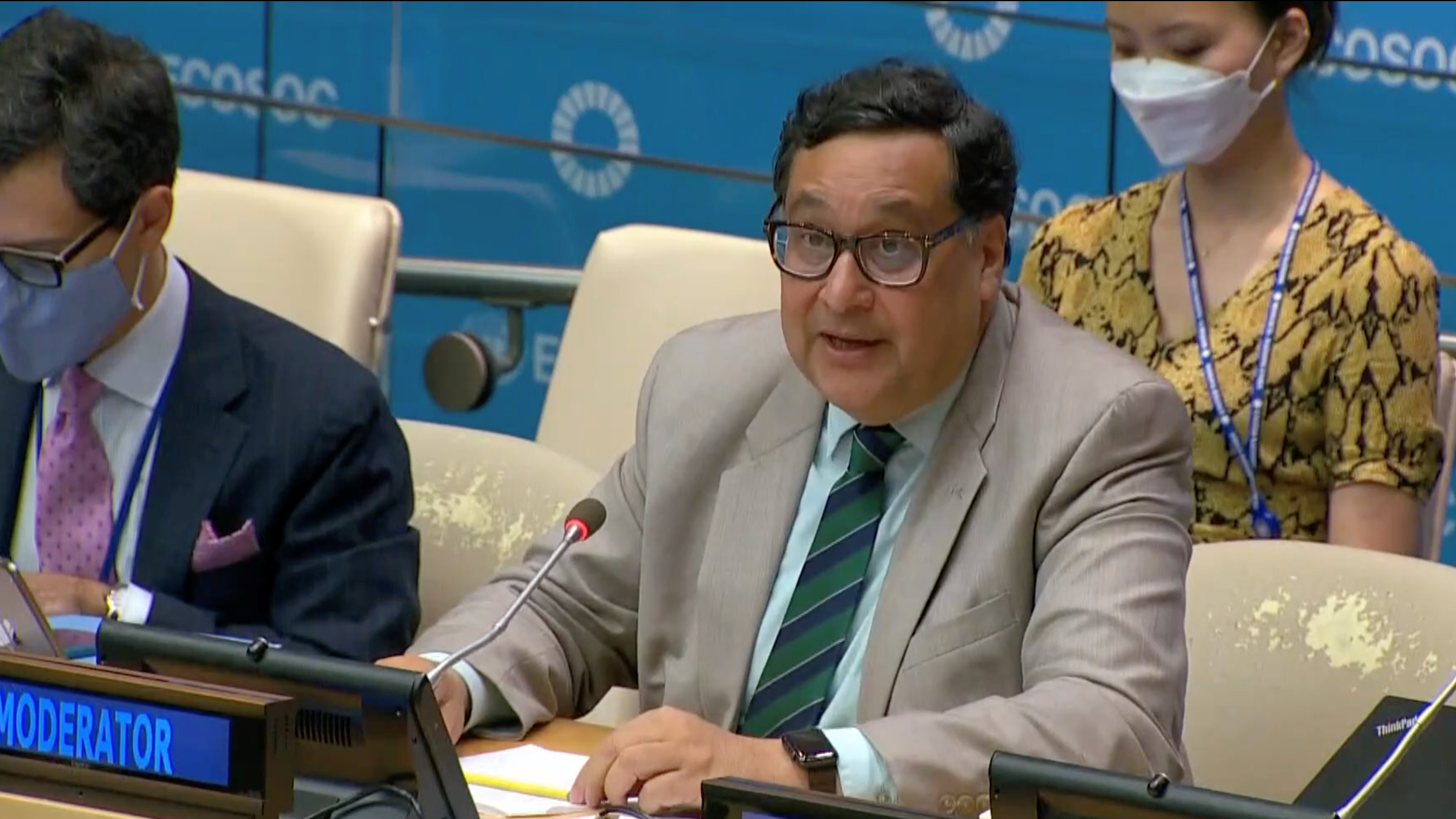Najam Moderates High-Level UN ECOSOC Discussion on SDGs

Adil Najam, Dean Emeritus and Professor of International Relations and Earth and Environment at Boston University’s Frederick S. Pardee School of Global Studies, was invited to moderate a United Nations panel of experts during the High-Level Segment (HLS) of the UN Economic and Social Council (ECOSOC) that capped the two-week High-Level Political Forum (HLPF) on Sustainable Development.
The program focused on future trends and scenarios related to the ECOSOC theme: the long-term impact of current trends, such as the contribution of new technologies, in the economic, social, and environmental areas on the realization of the sustainable development goals.
The two-hour panel discussion led by Najam was titled “Looking Ahead: Acting Today to Secure a Better Future” and was opened by H.E. Mr. Collen Vixen Kelapile, ECOSOC President. Liu Zhenmin, UN Under-Secretary-General for Economic and Social Affairs, also offered opening remarks to set the stage. In addition to leading academic and policy leaders working on the SDGs, the panel also included a Ministerial Respondents section during which the Foreign Minister of Malaysia, the Environment Minister of Botswana, and the Minister for Reform of Ireland spoke.
In his remarks, Najam highlighted the importance of studying the possible scenarios of global futures seriously. He suggested that in a post-COVID world this may have become more important than ever since it is clear that more surprises are waiting for us even in the near future. Najam also commented that “the most important determinants of what the global tomorrow may hold is the actions we take, or not take, today.”
For more on the panel, visit the UN HLPF website.
Adil Najam is a global public policy expert who served as the Inaugural Dean of the Frederick S. Pardee School of Global Studies at Boston University and was the former Vice-Chancellor of the Lahore University of Management Sciences (LUMS). His research focuses on issues of global public policy, especially those related to global climate change, South Asia, Muslim countries, environment and development, and human development. Read more about Najam on his faculty profile.